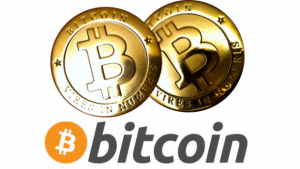Capitalism Needs Cryptocurrencies
 How do you think people paid for things in the 14th century? When most people went shopping, they might have gone to an outdoor marketplace that was considered an ordinary shopping center at the time. You would see men carrying purses that contained their money – usually coins, because paper money hadn’t quite caught on in Europe yet. Under normal circumstances, day laborers got paid in coins and used those same coins to make their purchases. Nobody cried about not having the ability to write checks or use debit cards for most of their purchases because that was just the way things were.
How do you think people paid for things in the 14th century? When most people went shopping, they might have gone to an outdoor marketplace that was considered an ordinary shopping center at the time. You would see men carrying purses that contained their money – usually coins, because paper money hadn’t quite caught on in Europe yet. Under normal circumstances, day laborers got paid in coins and used those same coins to make their purchases. Nobody cried about not having the ability to write checks or use debit cards for most of their purchases because that was just the way things were.
Banks were pretty much where rich people went when they wanted a loan for a major purchase. When you hear about how Queen Isabel pawned her jewels to finance Christopher Columbus’ expedition, that was pretty normal. Actually, major financial centers haven’t changed all that much. If there is one thing that hasn’t changed much since then, it’s that most banks won’t even consider making loans to people who don’t already have any major assets or a steady job.
McKinsey estimates that 2.5 billion people do not use banks or microfinance institutions. This has led to a perception that there’s not enough demand for the goods and services that people in developed countries take for granted to make it worthwhile for corporations to expand into markets that aren’t extensively served by financial institutions.
This is a false perception. The world’s unbanked could make waves in the world of economics if they could be paid for their work and pay for their purchases without having to go through a financial center. Prepaid debit cards could arguably be a stopgap measure, but some countries discourage or outright ban the use of bank cards like Visa and Mastercard. Likewise for Paypal, and it wouldn’t be very useful in this case anyway when validating a Paypal account requires a bank account. If we truly want to solve this problem in the long-term, we could go back to a system where everybody carries purses full of coins or we could make use of 21st century technologies like cryptocurrencies.
It can work. Give the unbanked a cheap tablet with a Bitcoin wallet and access to online marketplaces and then stand back and watch them sell their services. In some parts of Africa, prepaid cell phone minutes act as a kind of currency for people who don’t have ready access to their national banking system. Kenya has already had a considerable amount of success with the M-Pesa. It’s easy to use for anyone who has a cell phone and it’s not officially backed by Kenya’s government. Like any medium of exchange, it has value because people believe it has value. Users can even buy prepaid cards completely anonymously at any time. All of this is also true of cryptocurrencies like Bitcoin – even down to the existance of paper wallets that can work for people who believe that currency should be something you can hold in your hand.
This serves capitalism by making it possible for more people to participate in the system and creates a feedback loop in which somebody who was crippled and forced to beg could regain his dignity by weaving baskets for sale on international markets like CryptoThrift. Anybody can sell their skills for digital currencies and then use that currency to buy things they might not have access to right now.
It’s not a charitable effort that could disappear tomorrow. It’s giving the unbanked the tools they need to be more self-sufficient in the long haul. Banks dislike cryptocurrencies because it takes away their ability to control economies by denying service to people without assets, charging extortionist fees for payees’ “privilege” of accessing their own money, and sometimes causing economic meltdowns by taking too many unwarranted risks with other people’s money. However, banks wouldn’t be ignoring people without assets if they realized the economic powerhouse that the unbanked could be if they could simply gain access to more opportunities.
The people who say we don’t need any kind of currency at all obviously don’t understand large-scale economic systems that would become extremely inefficient without some kind of medium of exchange. If a pig farmer in Illinois agrees to give a plumber some pork in exchange for fixing the plumbing in his sink, that’s a barter agreement between two people. If the plumber knows he’s never going to eat all of that pork, he might trade some of it for some apples from a friend with a few apple trees. However, he’s not going to haul that pork to Florida to trade it for admission to Disney World. That plumber might put up with being paid in pork in that one instance if the pig farmer is just short on cash that month, but he would likely prefer to be paid using something that won’t spoil if he doesn’t use it right away and is small enough to fit in his pocket for most jobs.
What cryptocurrency does in this case is put things one level above bartering. When the plumber is paid in pork, it cuts out the banks who sit on top of the entire system and aren’t really set up for microtransactions. The same is true of Bitcoin transactions, but you don’t have to take the Bitcoin home and stick it in the freezer before it spoils in the heat. It can even cross international boundaries without having to be shipped in a refrigerated truck.
Bitcoin has the twin advantage of low transaction fees that amount to a few cents per transaction and the ability to bypass banks with their large international transaction fees every time you pay somebody in another country. Imagine being able to pay somebody to create the written content for your new website without having to worry about the freelancer charging extra to cover Paypal fees or refusing you altogether because Paypal doesn’t operate in his country. Sites like eGifter and Gyft will even give you a “bonus” in their points system for using Bitcoin because it saves them on fees. That’s the advantage of using a cryptocurrency and the ability to bypass financial institutions that seem intent on ignoring the very poor is what will make it useful for including the world’s unbanked in future economic systems.
[simple-rss feed=”http://rest.ebay.com/epn/v1/find/item.rss?keyword=%28bitcoin%2Clitecoin%2Cdogecoin%2Ccryptocurrencies%2Cantminer%29&sortOrder=BestMatch&programid=1&campaignid=5337337555&toolid=10039&listingType1=All&lgeo=1&descriptionSearch=true&feedType=rss” limit=10]






